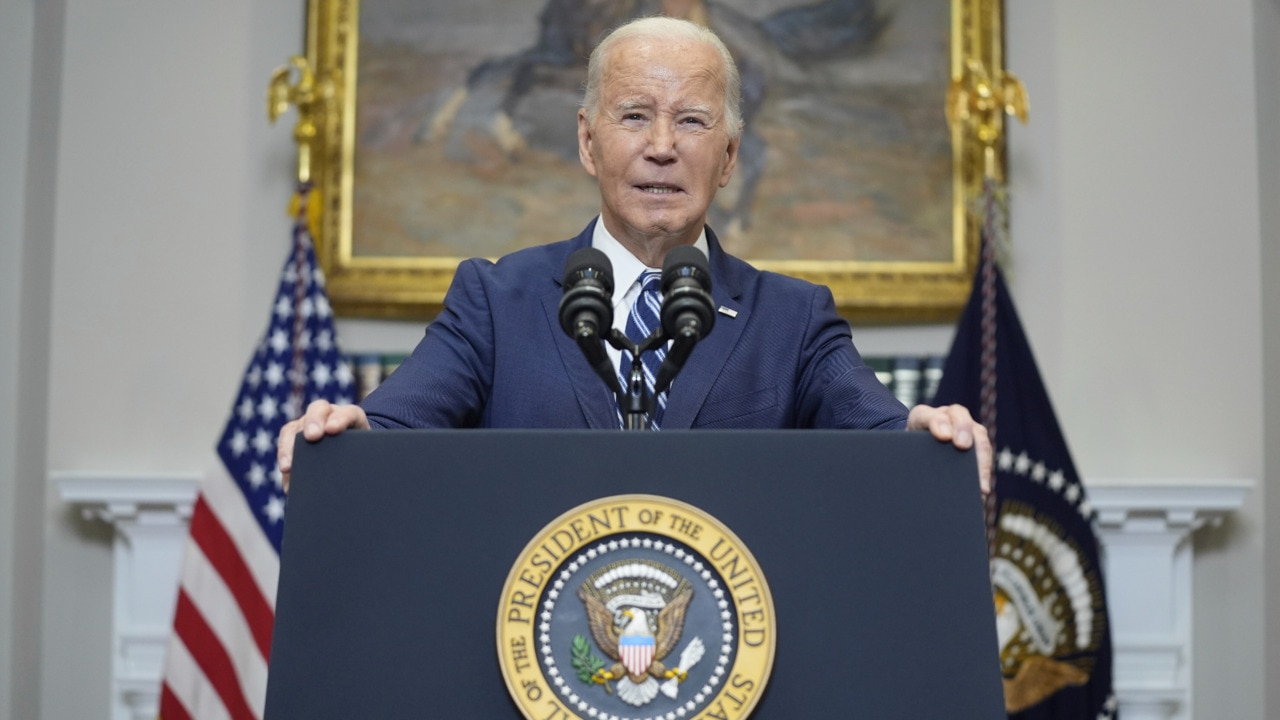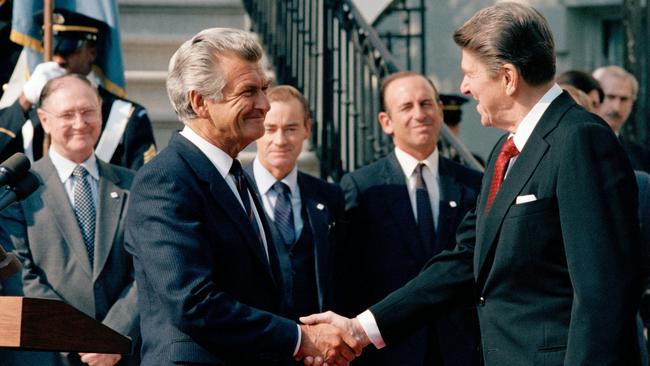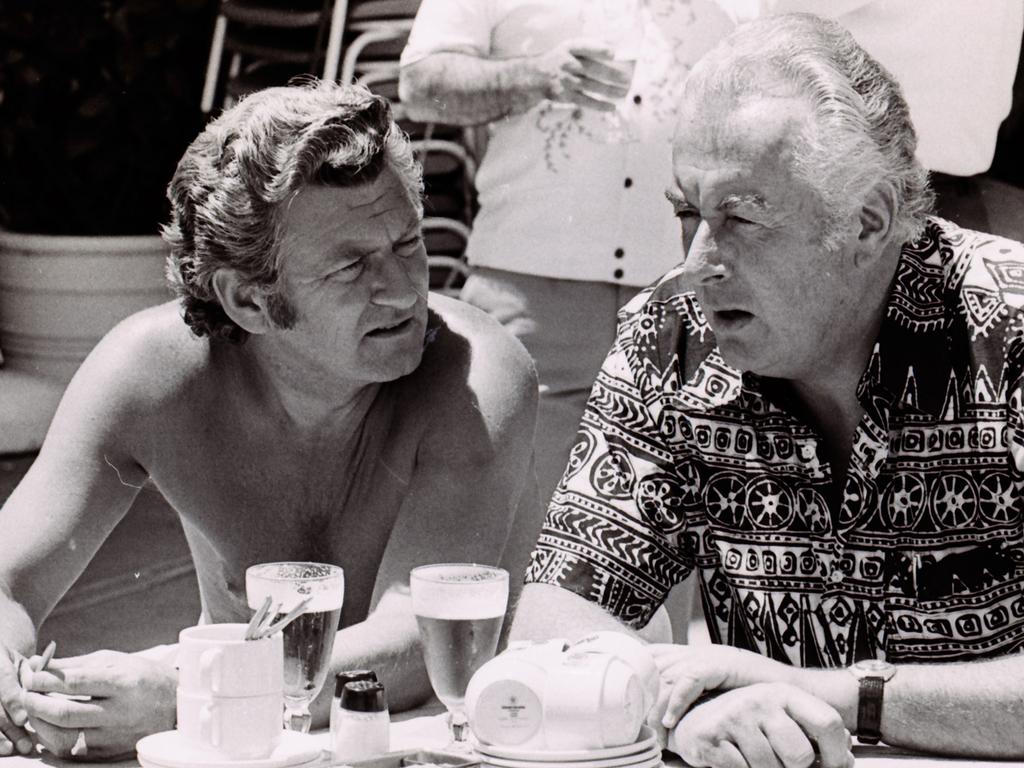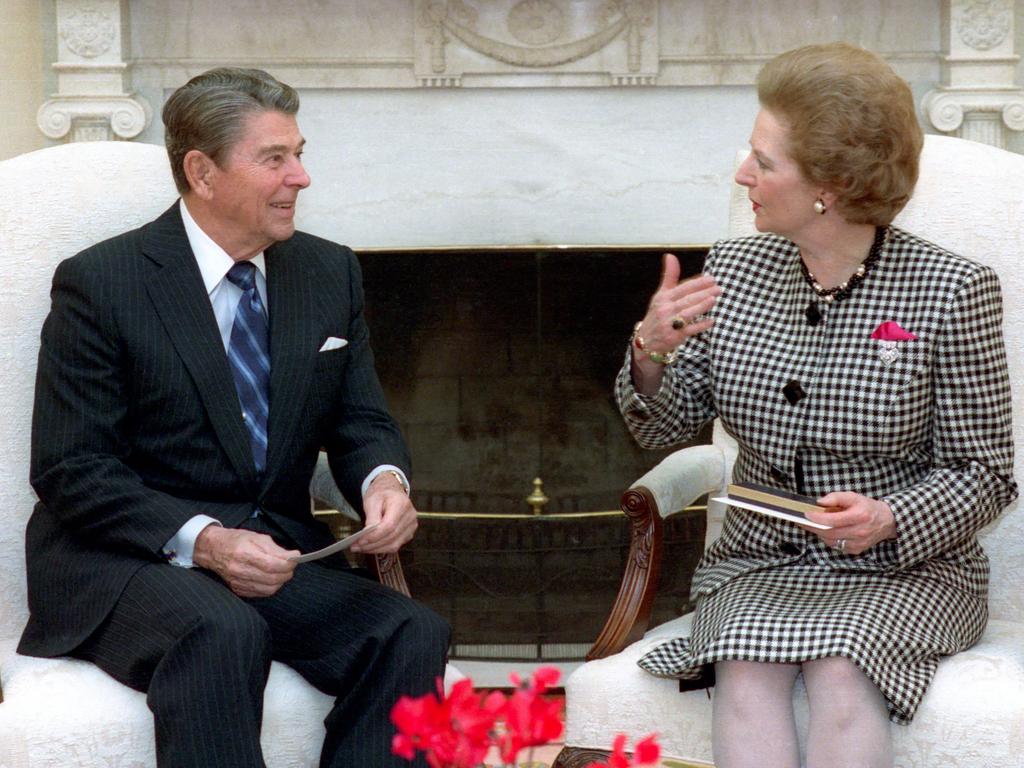Ronald Reagan was a ’fumbling and bumbling’ president, Australian diplomat told Bob Hawke
Once secret diplomatic records disclose what Bob Hawke was told about Ronald Reagan in his final months as president, and vice-president George HW Bush’s chances of winning the 1988 election.

Australia’s ambassador to the US described Ronald Reagan as a “fumbling and bumbling” president and his administration gripped by policy “paralysis” ahead of Bob Hawke’s visit to Washington in June 1988, according to newly declassified diplomatic records made available to The Australian.
“You will be coming here at a time when the effectiveness of the Reagan administration has waned further and when congressional willingness to tackle major issues is inhibited by the imminence of elections,” ambassador Rawdon Dalrymple cabled from Washington DC in May 1988.
“With the approach of a new administration and in a climate of heightened unease, there is a casting around for future policies and our views may have a better chance of being heard if they are or can be presented as being relevant to current US problems and concerns.”
Dalrymple, appointed by Hawke as ambassador three years earlier and a friend from his time at Oxford University, said there was “uncertainty” about the US and its role in the world, and Reagan’s administration had been gripped by “mistakes and damaging disclosures” in recent months.

“Despite most recent and present indications of fumbling and bumbling I would not be surprised to see President Reagan make a minor comeback in popular esteem in the last few months of his time in office,” Dalrymple judged. He noted that many voters assessed Reagan positively for building up defence, growing the economy and a falling unemployment.
But the cable also noted the “paralysis of fiscal policy”, high foreign debt and large trade deficit coupled with “confusion” about the role of the US in the world being more pervasive than at any time since the Vietnam War. Dalrymple, however, added the US would remain “the largest and strongest economic and military power for the foreseeable future” and it was in Australia’s interests to remain close to policy makers.
Hawke met Reagan for a fourth time at The White House in June 1988. They had established a “great relationship”, the president recorded in his diary.

Additional documents declassified by the National Archives of Australia at the request of The Australian reveal foreign minister Bill Hayden thought vice-president George HW Bush could lose the next presidential election and urged diplomats to organise a meeting for Hawke with presumptive Democratic nominee Michael Dukakis.
Hayden had been in Washington before Hawke’s arrival and was alarmed that the embassy had not secured a meeting with the Massachusetts governor. The prime minister did meet Dukakis for 45 minutes, after a brief phone call, and the declassified meeting record shows they discussed trade, ANZUS, US-Soviet Union relations, developments in the Asia-Pacific, and South African apartheid.
Hawke privately wanted Bush to defeat Dukakis. They had dined together, played golf and had many meetings during the Reagan presidency. Bush wrote in his unpublished diary seen by this writer that he had “a special relationship” with Hawke. In a 2018 interview with the 41st president, he told this writer he enjoyed “a close personal relationship grounded in respect and trust” with Hawke. “He’s a great friend in addition to being a great man,” he added.
Troy Bramston is the author of Bob Hawke: Demons and Destiny (Penguin Random House).








To join the conversation, please log in. Don't have an account? Register
Join the conversation, you are commenting as Logout